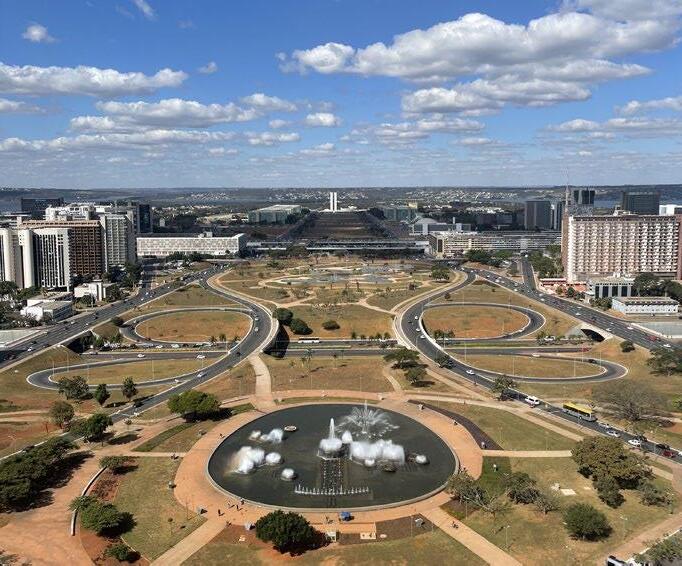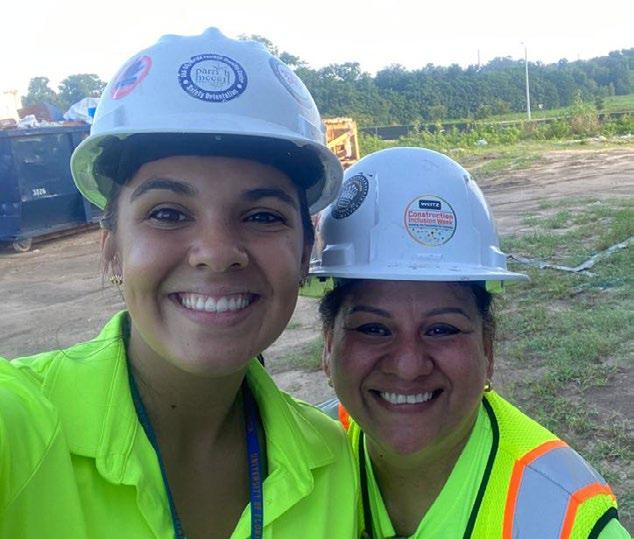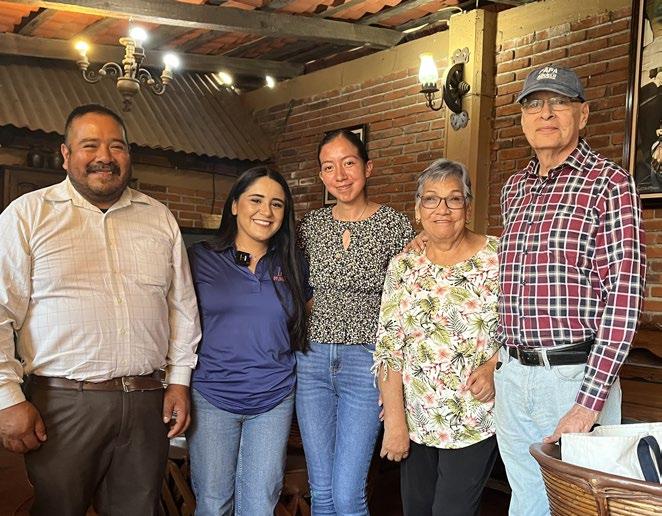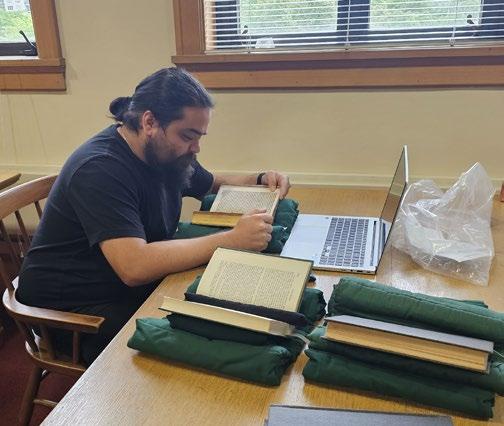
5 minute read
Student Stories: Fieldwork Research Map
DANIELA LIZARAZO

LATINA MIGRANT WOMENS WORKING IN THE CONSTRUCTION INDUSTRY
“My research focuses on the oral histories of Latina migrant women working in the construction industry in North Florida. Through their oral histories, I examine how working in a traditionally masculine field affects their kinship relations, self-perception, and family dynamics. This study not only addresses issues of gender and labor but also contributes to a broader understanding of how structural inequality shapes migrant identities and lives. Central to my research are feminist frameworks as well as qualitative and historical methods. As a Colombian migrant, I consider myself an "outsider within" (Patricia Hill Collins); my personal experiences have allowed me to understand and navigate the diverse challenges migrant communities face, fostering close connections with the women and families I work with."
MARIA DE LA CRUZ

VIEWING PERSPECTIVES AND NARRATIONS FROM THE MESETA P’UREPÉCHA ON CULTURE AND TRADITIONS POST-NAFTA
"I gained invaluable insights from the agroreligious communities that were the focus of my investigation. These communities’ daily practices are deeply rooted in maize cultivation. Yet, due to economic challenges in the 1990s-2000s, Hass avocado production emerged as an alternative market, reshaping traditions and customs. Despite this, many avocado producers preserve their agricultural traditions by planting maize, an act of cultural preservation and resistance, still incorporating it into their daily practices both in food production as well as religious practices. Through this research, I not only deepened my understanding of these acts of resilience but also gained profound insight into my own heritage and the richness of my community's history."
THAIS ZSCHABER

POPULIST STRATEGIES IN DEBATING ELECTORAL INTEGRITY DURING BRAZIL’S 2022 ELECTIONS
"I was both fascinated and terrified by the fact that the interviews I conducted in Brazil confirmed there is no simple resolution to the conflict between Jair Bolsonaro and the judiciary. My data revealed that casting doubt on the voting machines during Brazil’s 2022 elections was a deliberate part of Bolsonaro's broader strategy to radicalize opposition against the electoral court and the judiciary as a whole. However, the interviews with specialists in electoral and constitutional law highlighted significant disagreement among lawyers and academics. Some argued that the courts acted entirely within the Constitution, doing what was necessary to uphold democracy. Others acknowledged the necessity of the courts' actions but conceded that, at times, they operated beyond the boundaries of the law. Finally, a third group stated that the courts exceeded their constitutional authority, leading to instances of censorship. This divergence raises pressing questions: how can Brazil move forward as a divided nation without a consensus on what went wrong and what changes are needed?"
CARLOS PAREDES

AUTHORIZING EMPIRE: MYTHS AND NARRATIVES OF EMPIRE AND COLONIALISM THROUGH SPANISH ACCOUNTS OF THE AMERICAS
“I went to various archives to read about the first 100 years of Spanish colonization of the Americas. The goal of my research is to uncover the ideology of empire that exists in Spanish accounts of the Americas and how these texts provide a rhetorical defense of Spanish colonialism in the Americas. I read rare books, copies of letters, and tried to decipher 16th-century Spanish handwriting to the best of my ability. The cities I went to were beautiful but I felt the presence of Indigenous peoples and colonialism the most in Albuquerque, New Mexico where the unique blend of architecture, landscape, and food was unlike any I had encountered in the continental US. I visited churches dating back to the 1700s and saw landscapes and sunsets that overwhelmed me with awe. Indigenous is culture present in Albuquerque in a way that stood out. I recall that at the coffee store at the University of New Mexico's Center for Southwest Research, one of the workers had a pin on declaring that he was proudly Indigenous. The American Southwest, and Albuquerque especially, is such a unique and amazing place."
ANA GARCIA DE DIOS
A THEMATIC AND COMPARATIVE HISTORICAL ANALYSIS, CIVIL-MILITARY RELATIONS AND PROFESSIONALISM IN VENEZUELA FROM PUNTO FIJISMO TO CHÁVEZ
“Through my research, I found that civil-military relations theories from the Global North fail to account for Venezuela's unique socio-political and economic context, highlighting the limitations of a top-down approach in the Global South and emphasizing the need for frameworks that better reflect the realities of regimes like Venezuela. Using a comparative historical analysis, I compared the Punto Fijo era to Hugo Chávez's presidency, gaining a more nuanced understanding of the evolution of civil-military relations. The thematic analysis allowed me to identify and interpret patterns of meaning in legal texts and reveal underlying themes related to civil-military relations and military professionalism across different laws and historical periods. By combining these methodologies, I provided a nuanced understanding of the interplay between law, military, and political authority in Venezuela.










